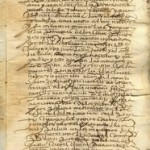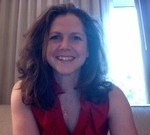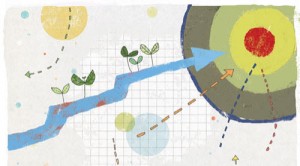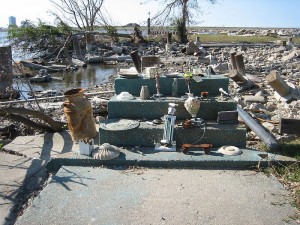building a CUNY DH Community since 2010
October 4: Seminar Meeting & Provost’s Digital Innovation Grant Showcase
On 01, Oct 2012 | In Meetings | By Charlie Edwards
Please join the CUNY Digital Studies/Digital Humanities Seminar this Thursday October 4, 2012 for our first meeting of the Fall 2012 semester. We will discuss plans for the upcoming year and winners of the Provost’s Digital Innovation Grants will present their project work to date. This newly-launched award supports innovative digital projects designed, created, programmed, or administered by doctoral and master’s students at the CUNY Graduate Center.
The event is free and open to the public. We look forward to seeing you there!
Thursday, October 4, 2102, 6:30pm-8:30pm
Room C205, CUNY Graduate Center
Seminar Meeting & Provost’s Digital Innovation Grant Showcase
Sharing their work will be:
Naomi Barrettara (Musicology): The Open Music History Project
The Open Music History Project will be an open music history “textbook,” designed to ultimately be an interactive, flexible, adaptable, affordable, and freely available online resource for teachers and students of western music history.
Amanda Licastro (English): The Writing Studies Tree
The Writing Studies Tree is an online, open-access, crowd-sourced database of scholarly relationships within writing studies, composition/rhetoric and related academic fields. The other members of the team are Ben Miller (English) and Jill Belli (Assistant Professor, English, City Tech).
Micki Kaufman (U.S. History): “Data Mining Diplomacy”: A Computational Analysis of the State Department’s Foreign Policy Files
This research project is an application of big data computational techniques like those employed by Michel et al. (“Culturomics: Quantitative Analysis of Culture Using Millions of Digitized Books”) and Nelson (“Mining the Dispatch”) to the study of diplomatic history.
Jacob Lederman (Sociology): Urban Sociology Digital Mapping and Presentation Tool
This project proposes creating a collaborative, customized Google mapping tool to be housed on an urban sociology class portal where students can upload data, photos, and systematic observations to generate a living, interactive “quilt” or patchwork of social scientific knowledge on various neighborhoods of the city.
Antonia Santangelo (Anthropology): The Black Sea Fish and Mollusca Project
The Black Sea Fish and Mollusca Project employs Omeka, an open source web-publishing platform for the display of library, museum, archives, and scholarly collections and exhibitions, to showcase a physical comparative collection of fish skeletons and mollusc shells from the Black Sea coastal regions of Bulgaria, Turkey, Romania, Ukraine, Russia and Georgia.
Rondi Silva (Urban Education): Debunking the “Dropout” Stereotype
This multi-modal study aims to challenge conventional views of “dropping out” and “dropouts” using video modules co-created and curated by its youth participants.
Fall 2012 CUNY Digital Studies/Digital Humanities Seminar Schedule
On 24, Sep 2012 | In Meetings | By Charlie Edwards
We are delighted to announce our schedule for Fall 2012, sponsored by the Center for the Humanities at the CUNY Graduate Center.
All events are free and open to the public, and take place at the CUNY Graduate Center.
Thursday October 4: Seminar Meeting & Provost’s Digital Innovation Grant Awardees
Time & Place: 6:30pm-8:30pm, Room C205
Join us as we welcome current and new members of the Seminar to an open meeting where we will discuss plans for the upcoming year and winners of the Provost’s Digital Innovation Grants will present their project work to date. This newly-launched award supports innovative digital projects designed, created, programmed, or administered by doctoral and master’s students at the CUNY Graduate Center.
Wednesday October 24: “Modeling the Past: New Projects of The Virtual World Heritage Laboratory”
Co-Sponsored by the M.A. Program in Liberal Studies
Bernard Frischer (University of Virginia)
Time & Place: 6:30pm-8:30pm, Room C201/202
Bernard Frischer, Director of the Virtual World Heritage Laboratory, University of Virginia, will discuss the team’s work modeling Hadrian’s Villa, a World Heritage Site. The imperial villa is being recreated in 3D by the VWHL and used as a test-bed for experiments in Roman cultural geography. The model includes terrain, gardens, water features, sculpture, buildings, furnishings, and avatars representing members of the imperial court. The IDIA Lab at Ball State University, a partner in the project, has taken the 3D model and ported it to the game engine Unity3D, so that it is possible to explore the reconstructed villa interactively over the Internet. This talk will present the project, its history, goals, current state, and future prospects.
Monday November 26: “Digital Publishing Today”
Ashley Dawson (CUNY), Matthew K. Gold (CUNY), Michael Mandiberg (CUNY), Tavia Nyong’o (NYU)
Time & Place: 6:30pm-8:30pm, The Skylight Room (9100)
What are the radical possibilities of open access publishing? This panel will bring together a number of scholars who have published online to consider how university presses are either facilitating or impeding efforts by academics to explore new forms of cultural production and media activism unleashed by movements such as Occupy Wall Street. Join us to explore these questions and to develop new strategies and models for contemporary academic publication.
Wednesday November 28: “The Commons and Digital Humanities in Museums”
Co-Sponsored by the Ph.D. Program in Art History and CUNY Graduate Center Digital Initiatives
Christina DePaolo (Balboa Park Online Collaborative), Michael Edson (Smithsonian), William Noel (University of Pennsylvania), Neal Stimler (Metropolitan Museum of Art)
Time & Place: 6:30pm-8:30pm, The Skylight Room (9100)
Inspired by the work of Lawrence Lessig, Lewis Hyde and Bill Ivey among others, museum technologists have been striving to provide greater access to cultural heritage collections in the form of a commons. The currents of DIY, digital humanities, free and remix culture have challenged museums to transform their relationships with scholars and the public toward openness and democratic participation. The GLAM-WIKI movement and Creative Commons licenses have also significantly reshaped museum practices. How can museums build vanguard collaborations and collective resources not only to aid constituents as they use institutional content but to create anew in a digital culture? This panel will explore the diverse implications of the formation of commons by museums.
May 31: Archiving Catastrophe – Digital Humanities & Times of Disaster
On 25, May 2012 | In Meetings | By Charlie Edwards
Please join us on Thursday, May 31, 2012, when three leading Digital Humanists will take part in a panel discussion that addresses DH-related efforts to archive and preserve materials after catastrophic events.
Thursday, May 31, 2012, 6:30pm-8:30pm
Room 6496, CUNY Graduate Center
Archiving Catastrophe: Digital Humanities & Times of Disaster
Paul Millar (University of Canterbury, New Zealand), Tom Scheinfeldt (George Mason University), and Steve Brier (CUNY Graduate Center)
In the months since a 7.1 magnitude earthquake hit New Zealand’s Canterbury province in September 2010, the region has experienced over ten thousand aftershocks, 430 above magnitude 4.0. The most devastating aftershock, a 6.2 earthquake under the centre of Christchurch on 22 February 2011, had one of the highest peak ground acceleration rates ever recorded. This event claimed 185 lives, damaged 80% of the central city beyond repair, and forced the abandonment of 6,000 homes. It is the third costliest insurance event in history. Paul Millar, project leader of the CEISMIC Canterbury Earthquakes Digital Archive, will discuss the role of Digital Humanities in developing an international resource to preserve the digital record of the earthquakes’ impacts and the long-term process of recovery.
The Hurricane Digital Memory Bank, based at the Roy Rosenzweig Center for History and New Media (RRCHNM) at George Mason University, uses electronic media to collect, preserve, and present the stories and digital record of Hurricanes Katrina, Rita, and Wilma. The project contributes to the ongoing effort by historians and archivists to preserve the record of these storms by collecting first-hand accounts, on-scene images, blog postings, and podcasts. Tom Scheinfeldt, Managing Director of RRCHNM, will discuss both this project and, with CUNY Grad Center’s Steve Brier, the September 11 Digital Archive.
The September 11 Digital Archive uses electronic media to collect, preserve, and present the history of the September 11, 2001 attacks in New York, Virginia, and Pennsylvania and the public responses to them. Funded by a major grant from the Alfred P. Sloan Foundation and organized by the American Social History Project at the Graduate Center and at RRCHNM, the work of the Archive is not only to gather digital materials related to the attacks but also to assess how history is being recorded and preserved in the twenty-first century, and to develop free software tools to help historians do a better job of collecting, preserving, and writing history. To these ends the Archive has partnered with the Library of Congress, which in September 2003 accepted the Archive into its permanent collections – an event that both ensured the Archive’s long-term preservation and marked the Library’s first major digital acquisition.
All three projects seek to foster positive legacies of terrible events by allowing the people affected to tell their stories in their own words, which as part of the historical record will remain accessible to a wide audience for generations to come.
About Paul Millar:
Associate Professor Paul Millar is the Head of the Department of English, Cinema and Digital Humanities at the University of Canterbury, New Zealand. His research interests include New Zealand and Pacific literature, literary biography, digital textual scholarship and Australasian attitudes to China. In 2001 he co-founded the New Zealand Electronic Text Centre, and he is currently focused on adding functionality to the CEISMIC Canterbury Earthquakes federated digital archive.
About Tom Scheinfeldt:
Tom Scheinfeldt is Managing Director of the Roy Rosenzweig Center for History and New Media and Research Assistant Professor of History in the Department of History and Art History at George Mason University. He has lectured and written extensively on the history of popular science, the history of museums, history and new media, and the changing role of history in society, and has worked on traditional exhibitions and digital projects at the Colorado Historical Society, the Museum of the History of Science in Oxford, The Louisiana State Museum, the National Museum of American History, and the Library of Congress. In addition to managing general operations at RRCHNM, Scheinfeldt directs several of its online history projects, including Omeka, THATCamp, One Week | One Tool, the September 11 Digital Archive, the Hurricane Digital Memory Bank, the Papers of the War Department, 1784-1800, and Gulag: Many Days, Many Lives. He gave a memorable talk here at CUNY DHI in December 2010.
About Steve Brier:
Dr. Stephen Brier founded the Interactive Technology and Pedagogy Certificate Program at The Graduate Center in 2002 and serves as its Coordinator. He is a historian and a member of the doctoral faculty in Urban Education who has published widely in text, video, and various forms of multimedia on issues from U.S. history to the uses of interactive technology to improve teaching and learning. He was the founding director of The Graduate Center’s American Social History Project/Center for Media and Learning and was the executive producer of the award-winning “Who Built America?” multimedia curriculum, including textbooks, videos, and CD-ROMs. He has co-produced other award-winning websites, including “History Matters” and the “September 11 Digital Archive”. Brier, who previously served for eleven years as a senior administrator at The Graduate Center, is also the institution’s Senior Academic Technology Officer and the co-director of its New Media Lab.
May 8: Ramona Hernández and Anthony Stevens-Acevedo on the Spanish Paleography Digital Teaching and Learning Tool
On 03, May 2012 | In Meetings | By Charlie Edwards
Please join us on Tuesday, May 8, 2012 when the leaders of the Spanish Paleography Digital Teaching and Learning Tool project, funded by a Digital Humanities Start-Up Grant awarded by the NEH’s Office of Digital Humanities, will visit CUNY DHI to discuss their work to date. The project aims to teach users the paleographic skills required to decode early-modern Spanish manuscripts.
Tuesday, May 8, 2012, 6:30pm-8:30pm
Room 6496, CUNY Graduate Center
The Spanish Paleography Digital Teaching and Learning Tool
Ramona Hernández and Anthony Stevens-Acevedo, CUNY Dominican Studies Institute, City College

The Spanish Paleography Digital Teaching and Learning Tool aims to teach users how to decode and read the now abstruse three main handwriting styles in fashion in the early modern Spanish-language world. At the heart of the project is the creation of a website prototype where visitors will be able to consult, on the same screen, different samples of early-modern Spanish handwritings and line-by-line transcriptions into contemporary typeface. By a basic process of repeated visual comparison, the users learn how to decipher or decode the early-modern Spanish manuscripts – a learning that still today, for the most part, is restricted to very specialized university, archives and library settings. Allowing Internet users worldwide to access this learning at any time will hopefully entice more students and scholars in the Humanities to conduct research on the early-modern Spanish world, while democratizing access to the paleographic skills involved.
About Ramona Hernández:
Dr. Ramona Hernández is director of the Dominican Studies Institute of the City University of New York (CUNY) housed at The City College of New York, and is Professor of Sociology at City College and on the faculty of the Graduate Center, CUNY. She serves as a trustee of the International Institute of Advanced Studies in the Social Sciences (Instituto Global de Altos Estudios en Ciencias Sociales) of the Dominican Republic. Dr. Hernández earned the Ph.D. and M.Phil. in Sociology from the Graduate Center, CUNY; an M.A. in Latin American and Caribbean Studies from New York University; and the B.A. in Latin American History from Lehman College. She is also author of pioneering texts in the areas of migration, labor, and Dominican studies, including The Mobility of Workers Under Advanced Capitalism: Dominican Migration to the United States (named Outstanding Academic Title by Choice, 2002) and, as co-author, The Dominican Americans (1998). She is a trustee of the Sociological Initiatives Foundation.
About Anthony Stevens-Acevedo:
Anthony Stevens-Acevedo is assistant director and founding member of the Dominican Studies Institute of the City University of New York (CUNY DSI) at The City College of New York. He is a founding member of the Council of Dominican Educators, the Dominican Studies Association, and a Foreign Corresponding Member of the Dominican Academy of History (Dominican Republic). Stevens-Acevedo is a historian and focuses his research on the early colonial history of the Dominican Republic. He is the lead investigator in CUNY DSI’s Dominican colonial research projects. He has an M.A. in History from The City College of New York, CUNY, and a B.A. in History of the Americas from the University of Seville, Spain. He is currently a student in the History Program at the CUNY Graduate Center.
Dr. Hernández and Stevens-Acevedo have recently co-authored the chapter ‘Dominican Americans’ for ‘Multicultural America: An Encyclopedia of the Newest Americans,’ Ronald H. Baylor, editor, 2011. In 2011 they co-edited a special issue on Dominicans in the United States of “Camino Real,” the Journal of Instituto Franklin of the University of Alcalá, Spain, devoted to the Hispanic world in the United States.
May 1: Doug Reside (NYPL) on the Digital Creative Process of Jonathan Larson’s RENT
On 26, Apr 2012 | In Meetings | By Charlie Edwards
Please join us on Tuesday, May 1, 2012 when we will be delighted to host Doug Reside of the New York Public Library.
“How do you document real life?: Discovering the Digital Creative Process of Jonathan Larson’s RENT”
Doug Reside, New York Public Library
Tuesday, May 1, 2012, 6:30pm-8:30pm
Room 6496, CUNY Graduate Center

Doug Reside will discuss his attempts to reconstruct the creative process that produced the musical RENT by recovering and studying the digital drafts from Jonathan Larson’s original floppy disks. Reside will also offer some reflections on his newly minted position as Digital Curator of the Performing Arts at New York Public Library and will suggest strategies libraries may employ for dealing with the coming onslaught of born digital research collections.
About Doug Reside:
Doug Reside became the first Digital Curator of the Performing Arts at New York Public Library in February of 2011 after serving for four and a half years on the directorial staff of the Maryland Institute for Technology in the Humanities (MITH) at the University of Maryland in College Park. He has led numerous Digital Humanities projects and is currently editing the Musical of the Month blog at NYPL which makes available one musical theater libretto each month in various ebook formats.
Spring 2012 CUNY Digital Studies/Digital Humanities Seminar Schedule
On 26, Apr 2012 | In Meetings | By Charlie Edwards
We are delighted to announce (though belatedly!) our full schedule of events for Spring 2012, sponsored by the Center for the Humanities at the CUNY Graduate Center. We have three exciting presentations still to come in May and very much hope you will be able to join us.
All events are free and open to the public, and take place at the CUNY Graduate Center.
Friday, February 17, 4pm-6pm: “Debates in the Digital Humanities: A Panel Discussion”
Chair: Matthew K. Gold and Panelists: Stephen Brier, Charlie Edwards & David Greetham
Room 4406, CUNY Graduate Center
Sponsored by the Ph.D. Program in English
The semester began with a panel discussion kindly hosted by CUNY Graduate Center’s English PhD Program as part of the program’s “Friday Forum” series. The topic was Debates in the Digital Humanities, recently published by the University of Minnesota Press, and edited by our own Matthew K. Gold.
Monday, April 2, 6:30pm-8:30pm: “Risking Failure by Playing Around with Digital Pedagogy”
Katherine D. Harris (San José State University)
Room 6417, CUNY Graduate Center
For our second event of the semester, we welcomed CUNY alum Katherine D. Harris to speak on DH in the undergraduate classroom. Her talk focused on her experiences with a student-driven project that is run outside the institutional boundaries of a traditional English Department curriculum and the risks, failures, and disappointments that are inherent in adopting a collaborative and playful learning environment.
Tuesday, May 1, 6:30pm-8:30pm: “How do you document real life?: Discovering the Digital Creative Process of Jonathan Larson’s RENT”
Doug Reside, New York Public Library
Room 6496, CUNY Graduate Center
Doug Reside will discuss his attempts to reconstruct the creative process that produced the musical RENT by recovering and studying the digital drafts from Jonathan Larson’s original floppy disks. Reside will also offer some reflections on his newly minted position as Digital Curator of the Performing Arts at New York Public Library and will suggest strategies libraries may employ for dealing with the coming onslaught of born digital research collections.
Tuesday, May 8, 6:30pm-8:30pm: “Digital Paleography at CUNY: The Spanish Paleography Digital Teaching and Learning Tool”
Ramona Hernández and Anthony Stevens-Acevedo, CUNY Dominican Studies Institute, City College
Room 6496, CUNY Graduate Center
The leaders of the Spanish Paleography Digital Teaching and Learning Tool project, funded by a Digital Humanities Start-Up Grant awarded by the NEH’s Office of Digital Humanities, will join us to discuss their work to date. The project aims to teach users the paleographic skills required to decode early-modern Spanish manuscripts.
Thursday, May 31, 6:30pm-8:30pm: “Digital Humanities and Natural Disasters: Archiving Catastrophe”
Paul Millar (University of Canterbury, New Zealand), Tom Scheinfeldt (George Mason University), and Steve Brier (CUNY Graduate Center)
Room 6496, CUNY Graduate Center
Three leading Digital Humanists will join us in a panel discussion that addresses DH-related efforts to archive and preserve materials after catastrophic events. They will discuss the CEISMIC Canterbury Earthquakes Digital Archive, the Hurricane Digital Memory Bank, and the September 11 Digital Archive. All three projects seek not only to preserve the digital record of the events, but to foster positive legacies by allowing the people affected to tell their stories in their own words, which as part of the historical record will remain accessible to a wide audience for generations to come.
April 2: Katherine D. Harris on “Risking Failure by Playing Around with Digital Pedagogy”
On 29, Mar 2012 | In Meetings | By Charlie Edwards
Please join us on Monday, April 2, 6:30-8:30pm when we will be delighted to welcome CUNY alum Katherine D. Harris (San José State University) to speak on DH in the undergraduate classroom.
Details are below – we look forward to seeing you!
Time & Place: Monday April 2, 2012, 6:30-8:30pm, Room 6417, CUNY Graduate Center
Katherine D. Harris: “Risking Failure by Playing Around with Digital Pedagogy”
 In Planned Obsolescence: Publishing, Technology and the Future of the Academy, Kathleen Fitzpatrick warns that academic futures need to be governed by expansive change: “We need to think less about completed products and more about text in process; less about individual authorship and more about collaboration; less about originality and more about remix; less about ownership and more about sharing” (83). If scholarly communication needs this type of revision, then I suggest so too does undergraduate pedagogy.
In Planned Obsolescence: Publishing, Technology and the Future of the Academy, Kathleen Fitzpatrick warns that academic futures need to be governed by expansive change: “We need to think less about completed products and more about text in process; less about individual authorship and more about collaboration; less about originality and more about remix; less about ownership and more about sharing” (83). If scholarly communication needs this type of revision, then I suggest so too does undergraduate pedagogy.
But, something happens when we start incorporating Digital Humanities and digital pedagogy into the undergraduate classroom, something that’s not embraced in academia: failure. Digital Humanities scholarship requires collaboration and playfulness – both risky endeavors in any Humanities classroom because of the need for assessment, structure, rules, and bounded learning. But, what happens when we modify some of the institutional structures and student learning outcomes to accommodate these two methods for learning and add into the curriculum a requirement for building something, anything, within the undergraduate classroom? The students collaborate, play around, and build materials for public scholarship, but we all risk failure – and then learn from it.
Using the Beard-Stair Project as an example, I would like to discuss a student-driven project that is run outside the institutional boundaries of a traditional English Department curriculum and the inherent risks, failures, and disappointments that are integral to this type of productive learning environment. Though the students collaborate, play around, and build materials for public scholarship, both I and the students have to accept some failures that are then assimilated into the project.
Katherine D. Harris (Tenured Assistant Professor, English and Comparative Literature, San José State University) specializes in Romantic-Era and 19th-century British literature, women’s authorship, the literary annual, 19th-century history print culture and history of the book, textuality, editorial theory, Digital Humanities, and pedagogy. Her work ranges from pedagogical articles on using digital tools in the classroom to traditional scholarship on a “popular” literary form in 19th-century England. Much of her work can be explored on her research blog: http://triproftri.wordpress.com.
Many thanks to The Center for the Humanities at The Graduate Center, CUNY for sponsoring this event.
December 12: DH and Graduate Education–Bethany Nowviskie (UVa) on “The Praxis Program at the Scholars’ Lab”
On 04, Dec 2011 | In Meetings | By Matthew K. Gold
Please join us for our final meeting of the semester on Monday, December 12, 6:30-8:30pm at the CUNY Graduate Center (Room 9204) for an exciting session on Digital Humanities and Graduate Education:
Bethany Nowviskie, “The Praxis Program at the Scholars’ Lab.” 
Praxis is a radical re-imagining of the methodological training offered to graduate students in the Scholars’ Lab at the University of Virginia Library. Alongside our well-established program for Grad Fellows in Digital Humanities, six new students are apprenticing with us to design and build Prism, a tool for “crowd-sourced” textual analysis, visualization, and interpretation. Our goal — as we test a hands-on curriculum live and in public — is to spark conversation about methodological training in the humanities. How should we prepare the next generation of knowledge workers for emerging faculty positions and alternative academic careers?
Readings/Links:
- http://praxis.scholarslab.org/
- http://nowviskie.org/2011/praxis-and-prism/
- http://www.uvasci.org/current-institute/ (see this year’s full report: http://www.uvasci.org/wp-content/uploads/2011/04/SCI9-report.pdf )
- http://mediacommons.futureofthebook.org/alt-ac/ (see especially Bethany’s introduction: “Two Tramps in Mud Time” http://mediacommons.futureofthebook.org/alt-ac/pieces/introduction-two-tramps-mud-time )
Bethany Nowviskie is director of digital research and scholarship at the University of Virginia Library Scholars’ Lab and associate director of the Scholarly Communication Institute. She is the editor of #Alt-Academy: Alternative Careers for Humanities Scholars.
Ben Vershbow on “NYPL Labs: Hacking the Library” [video]
On 28, Nov 2011 | In Meetings, Video | By Matthew K. Gold
The CUNY Digital Humanities Initiative is happy to release video from our November 14, 2011 event on Digital Humanities in the Library with Ben Vershbow of the New York Public Library. Ben’s talk was titled “NYPL Labs: Hacking the Library.” Please read our original announcement for more details on the talk. We thank Ben for an excellent session and a lively Q&A!
November 14: DH in the Library – Ben Vershbow (NYPL) on “NYPL Labs: Hacking the Library” (apologies for the focus issues at the start of the video; it gets better!)
[vimeo]http://vimeo.com/32399999[/vimeo]
Q&A Session
[vimeo]http://vimeo.com/32400612[/vimeo]
Digital Humanities in the Classroom – Mark Sample and Shannon Mattern [video]
On 19, Nov 2011 | In Video | By Matthew K. Gold
The CUNY Digital Humanities Initiative is pleased to release video from our October 18, 2011 event on Digital Humanities in the Classroom with Mark Sample and Shannon Mattern. Please read our original announcement for more details on their talks. We’re very grateful to them for sharing their work with us!
Mark Sample, “Building and Sharing When You’re Supposed to be Teaching”
[vimeo]http://vimeo.com/32382483[/vimeo]
Shannon Mattern, “Beyond the Seminar Paper: Setting New Standards for New Forms of Student Work”
[vimeo]http://vimeo.com/32385882[/vimeo]



 Welcome to the blog of the CUNY DHI, an effort to build momentum and community around Digital Humanities practitioners at CUNY. We hope you'll join us at our upcoming events and that you'll follow this blog to hear about the latest news in the field.
Welcome to the blog of the CUNY DHI, an effort to build momentum and community around Digital Humanities practitioners at CUNY. We hope you'll join us at our upcoming events and that you'll follow this blog to hear about the latest news in the field.



Recent Comments